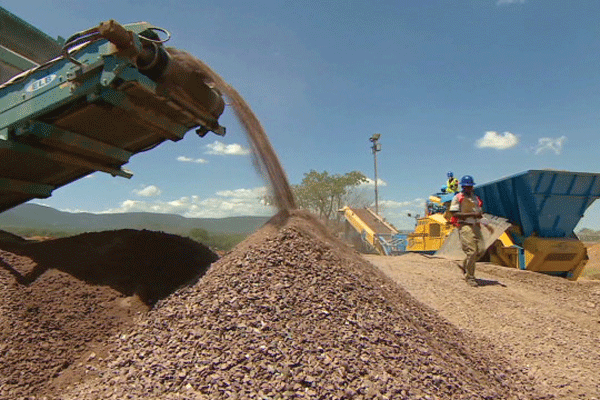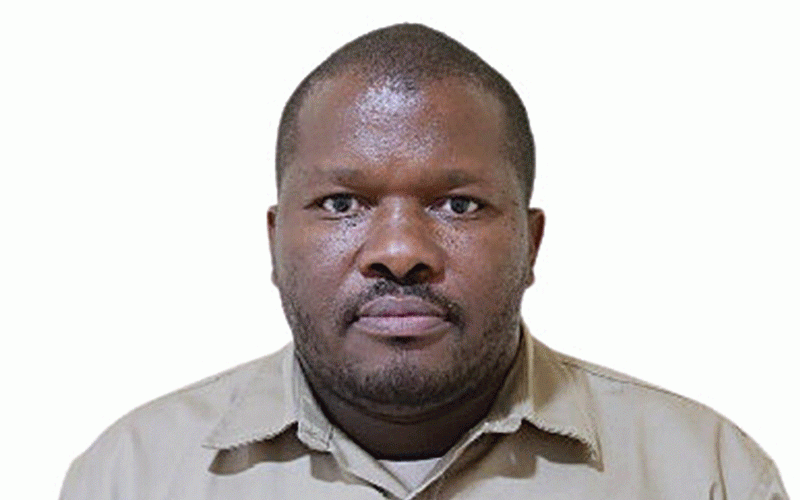
SHORTLY before Finance minister Mthuli Ncube delivered his maiden National Budget statement in Parliament, Bulawayo city was showered with rains. The Botswana pula, a strong and stable currency which literally means rain, immediately came to mind. Was this a good omen for Zimbabwe, a mineral-rich country like Botswana, but with sharply contrasting economic trends?
Mukasiri Sibanda
All because Botswana has not been squandering the depleting opportunity to development from exploitation of non-renewable mineral resources, diamonds mainly. Yet Zimbabwe, replete with diverse minerals, diamonds, platinum, chrome, gold, coal and lithium among others, is under a resource curse. Mineral wealth is not translating to improved living standards for most of its citizens.
Considering that multiple mining mega deals were announced this year, creating a conducive policy environment to unleash the potential propulsive development effect of mineral wealth was a deal breaker for the 2019 National Budget.
Now that the budget statement has been delivered, the Zimbabwe Environmental Law Association (Zela) is duty bound to analyse the statement using tenets of good mineral resources as a benchmark — the Africa Mining Vision. Zela’s interest is compounded because submissions were made to Parliament Portfolio Committee on Mines and Mining Development. The submissions were made on October 22, 2018 during a multi-stakeholder consultation on expectations for the 2019 National Budget statement by the committee.
Reconciliation of pre-budget public consultations and the national budget statements
On inclusive approach to development, Section 13 (2) of the Constitution of Zimbabwe requires people to be involved in the formulation and implementation of development plans and programmes that affect them. Rightly so, pre-budget public consultations were done. In line with technological trends, use of social media to give a voice to citizens, the Finance minister took a step further by considering submissions made through social media — Twitter, Facebook and blog. Remarkably, the minister has an active personal Twitter handle, @MthuliNcube.
The submissions made by Zela during the public pre-budget consultations were mainly harvested from the Alternative Mining Indaba (AMIs), held at district, provincial and national level. AMIs are multi-stakeholder platforms designed to strengthen solidarity and the voice of communities affected by mining. Therefore, mining affected communities have space to engage with stakeholders, government, Parliament and business on their concerns, largely Environment, Economic, Social and Cultural Rights (EESCRs).
- Chamisa under fire over US$120K donation
- Mavhunga puts DeMbare into Chibuku quarterfinals
- Pension funds bet on Cabora Bassa oilfields
- Councils defy govt fire tender directive
Keep Reading
Mineral revenue transparency
During the pre-budget public consultations, we demanded that the budget must embrace the Extractive Industries Transparency Initiative (EITI) or resuscitate Zimbabwe Mineral Revenue Transparency Initiative (ZMRTI) — a home grown version of EITI which failed to take off in 2011.
Transparency in the mining sector is fundamental to allow citizens connect the dots between mega deals and sustainable development and hold government and investors to account. Commendably, the 2019 national budget statement expressed urgent desire by government to join EITI.
Behind the scenes, Zela gave advice to the Ministry of Finance on the four steps required to join EITI. The sign-up phase; the preparatory phase; the disclosure phase; and the dissemination phase. The sign-up step is the first phase in joining the EITI. It is the period when the government must demonstrate its seriousness about the EITI by;
- Issuing an unequivocal statement of its intention to support EITI implementation
- Making a commitment to work with civil society and companies on EITI implementation. EITI is a tripartite arrangement including business, civil society organisations and government
- Appointment of a senior individual to lead the EITI effort
- Developing and publishing a costed work plan, with measurable targets and timeframes for implementation, and assessment of any constraints on the capacity of stakeholders to participate.
By expressing commitment to join EITI through the 2019 national budget statement, government has taken the first step. A long road lies ahead. But, as they say, a journey of thousand miles begin with a single step. It must not be lost that this is not the first time that government expressed commitment through national budget statements to embrace EITI or resuscitate ZMRTI without any traction.
This time around, our enthusiasm is fuelled by our partnership with Parliament, especially, the Portfolio Committee on Mines and Mining Development which requested a training workshop on EITI. Further, we have started to engage Zimra and Ministry of Finance on capacity building around EITI.
Funds for a computerised mining title management system or mining Cadastre
Strangely, a country with development plans hinged on mining does is using an archaic mining title management system which encourages corruption and claim ownership disputes. Of course, transparency is viewed as toxic by policy makers who thrive on the opaqueness in the mining sector. By allocating $1,8 million and promising to prioritise foreign currency allocation for a computerised mining system, a foundation has been laid to bring sanity to the management of mining claims. We commend the minister for the positive response to one of our key asks during the pre-budget public consultations.
Through Zela’s participation in the mining Technical Working Group (TWG) on ease of doing business in 2017, the Ministry of Mines had indicated that $2 million is needed to fully computerise the mining title management system. Certainly, the budget of $1,7 million will go a long way to make the project feasible. Through the Parliament Portfolio Committee on Mines and Mining Development, the public must pressure the Ministry of Mines to ensure implementation of the computerised title management system. Tracking the disbursement of funds from the Consolidated Revenue Fund (CRF) to the Ministry of Mines and expenditure reports from the Ministry will indicate whether the programme is on track or not.
Sovereign wealth funds
The budget made a commitment to operationalise the Sovereign Wealth Fund (SWF). This fund is important to allow intergenerational sharing of resources as required by constitutional principles on public financial management, Section 298 (1) (c).
One source of resourcing the SWF is compliance with the obligation to allocated 25% of mineral royalties to the SWF. Monitoring income from royalties into the CRF and disbursement made to the SWF is one area that civil society must work together with Parliament on budget tracking.
Dealing with mining claims that are held for speculative purposes
While we commend the minister for the intention to unlock Zimbabwe’s mineral potential to catalyse sustainable development, the budget fell short of meeting one of our demands on competitive bidding to dispose of released claims.
Competitive bidding brings transparency in the allocation of mining claims with huge mineral wealth potential, a critical mitigation to corruption risk. Further, competitive bidding creates opportunities for choosing an investor who offers a greater development dividend from mining — taxes, skills development, technology transfer, infrastructure and development of local supply chains.
This year, Zimplats released nearly 24 000 hectares of platinum claims which were secretly transferred by government to Karo Resources without competitive bidding. Accounting for tax incentives
As part of the tax justice campaign, Zela sounded like a broken record on the need to weed out harmful over generous tax incentives which weakens government’s fiscal muscle from the exploitation of minerals.
Therefore, Zela is excited to note that the budget proposed to develop a “tax incentives monitoring and evaluation framework to facilitate the management of timed tax expenditures as well as to inform cost benefit analysis of tax expenditures by Treasury, on an annual basis, with effect from 1 January 2019.”
To be effective, the framework should factor in the discount factor to tax revenue brought by export incentives which have negatively discounted mining royalty income over the past two and half years.
Linkages between loans to ASM and environment rehabilitation
The budget statement called for linkages between funding to the Artisanal and Small-Scale Mining (ASM) sector from Fidelity Printers and Refineries (FPR) and Mining Loan Fund (MLF).
Although the MLF is no longer operational, FPR has increased its funding from $20 million to $150 million this year. Increased ASM gold output from 3,9 tonnes in 2014 to 19 tonnes from January to September 2019 is mainly attributed to funding from RBZ.
Much as ASM is critical source of livelihood, the threat posed to the environment and sustainability of other socio-economic activities like agriculture is cannot be ignored. Innovation is key. RBZ runs an export incentive scheme for gold producers. This scheme can be adopted or adapted to come up with an incentive scheme for rehabilitation. RBZ can also provide critical rehabilitation equipment to key gold producing districts.
Implementation is key
By embracing EITI, a world best practice on transparency in the mining sector, allocating resources for a computerised mining title management system, developing a framework to monitor and evaluate the cost and benefit of tax incentives and promoting linkages between funding to ASM sector, and enhancing linkages between funding to ASM sector and environment rehabilitation, the 2019 national budget is certainly forward looking on effective resource governance. Implementation is key. Civil society and Parliament should play a critical oversight role to ensure implementation.
Mukasiri Sibanda is with ZELA, a public interest environmental law organisation that seeks to promote economic, social, cultural and environmental rights of communities in Zimbabwe. This article was first published on Mukasiri’s blog.











